Psychology Abroad: A Serendipitous MeetingBy Dr. Tammy Hatfield - KPF Vice President & Secretary While traveling in the Northern African country of Mauritania this summer, I happened upon a serendipitous find. Driving through the capital city of Nouakchott, I passed a building with a large green sign that read “Centre SAADA counseling” and listed the name of a psychologist, Dr. Wiam Mohamed Elmamy. It was with delight and excitement that I stopped hoping to have the opportunity to speak with the psychologist. I was curious to find out what psychologists do there and what type of psychological services are offered in the country.
As I walked toward the Centre SAADA, I passed through a welcoming courtyard and into the main office where I found the receptionist, who spoke French and Arabic (and a local dialect called Hassaniya). My husband, who is originally from Mauritania, was with me and offered his assistance with translation. Although Dr. Mohamed Elmamy was not in the office, the assistant provided us with her telephone number and I convinced my husband to call and ask if she was available to meet. It seemed she was also excited to have the opportunity to connect with another similar professional and offered to meet us at her office in 10 minutes.
Dr. Mohamed Elmamy promptly arrived and invited us into her office for a chat. She was incredibly warm and welcoming. The receptionist provided large bottles of juice and glasses, as is customary in the culture as a way of welcoming guests. Dr. Mohamed Elmamy sat behind her desk and my husband and I sat in the two chairs just in front of her desk as we began our conversation. I speak very little French, Arabic, or Hassaniya so my husband, again, translated. I asked Dr. Mohamed Elmamy to share her story of developing a psychological practice in Mauritania. She mentioned that she is the only psychologist in independent practice in Mauritania and added that there are “two or three” other psychologists in the country now who work at the local hospitals. She stated the psychology and counseling are novel approaches in the country, there is no licensure, and their work is not yet widely recognized. She described spending one year in efforts to convince the local government to provide her a business license to open the practice and another year putting together a network group of persons who have some interest or knowledge in developing counseling and psychological services in the country. She noted a lack of resources available to provide the services she views as needed in the capitol city and beyond. When asked about the type of concerns she is presented within her practice, Dr. Mohamed Elmamy indicated the most prevalent psychological issues are short and long-term effects of childhood trauma and various behavior problems among children. She also mentioned that the rates of autism in Mauritania are “very high” but did not provide a specific estimate of percentage. Dr. Mohamed Elmamy indicated that she earned her Ph.D. in Educational Psychology in 2017 from the University of Ains-Cheins in Egypt. Her dissertation is titled “The Effectiveness of a Program for Developing Intrapersonal and Interpersonal Intelligence as an approach for reducing Aggressive Behavior Among Secondary Female Adolescent Students”. Her study involved providing services at a school in a rural area where students demonstrated significant behavioral problems and low academic achievement levels. She stated that her approach resulted in increased academic performance and a reduction in aggressive behavior. She also mentioned that administrators of the school where she provided the intervention were “amazed” with the transformation in the student population. I congratulated her on efforts to apply psychology across various settings. One aspect of Dr. Mohamed Elmamy’s work that was fascinating to me, and relevant to our own national discussion today, is the time she spent training police officers inhumane response to immigrants who illegally cross borders. She detailed some of the efforts she made in helping the police officers gain empathy and understand why many people make the decision to cross borders, transatlantically in small boats, as a way of escaping major hardships and dangers in their home countries. The conversation with Dr. Mohamed Elmamy ended with her polite extension of an invitation to join her and her family for dinner during our time in the country. Since that time, she and I have chatted on several occasions via WhatsApp. I look forward to reconnecting with her during my next visit to the country and learning more about the important and groundbreaking work she is doing in the area of service and promotion of psychology. |

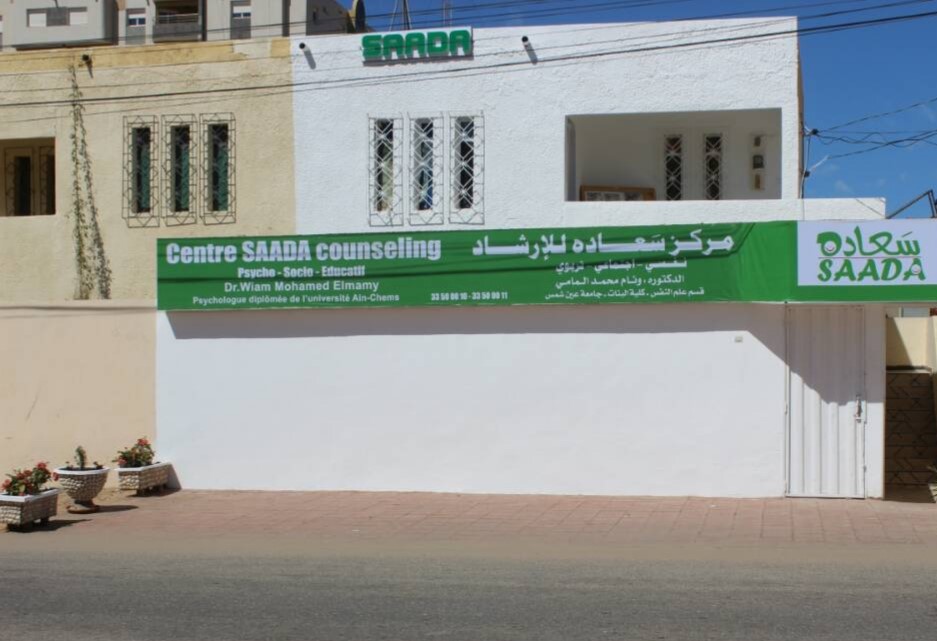 Exterior of Centre SAADA Counseling
Exterior of Centre SAADA Counseling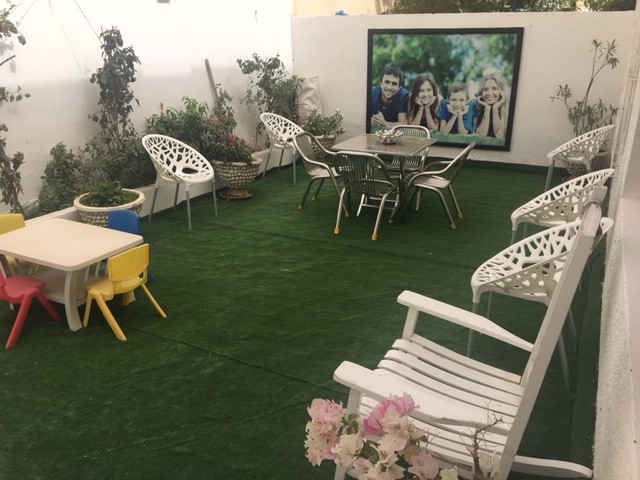
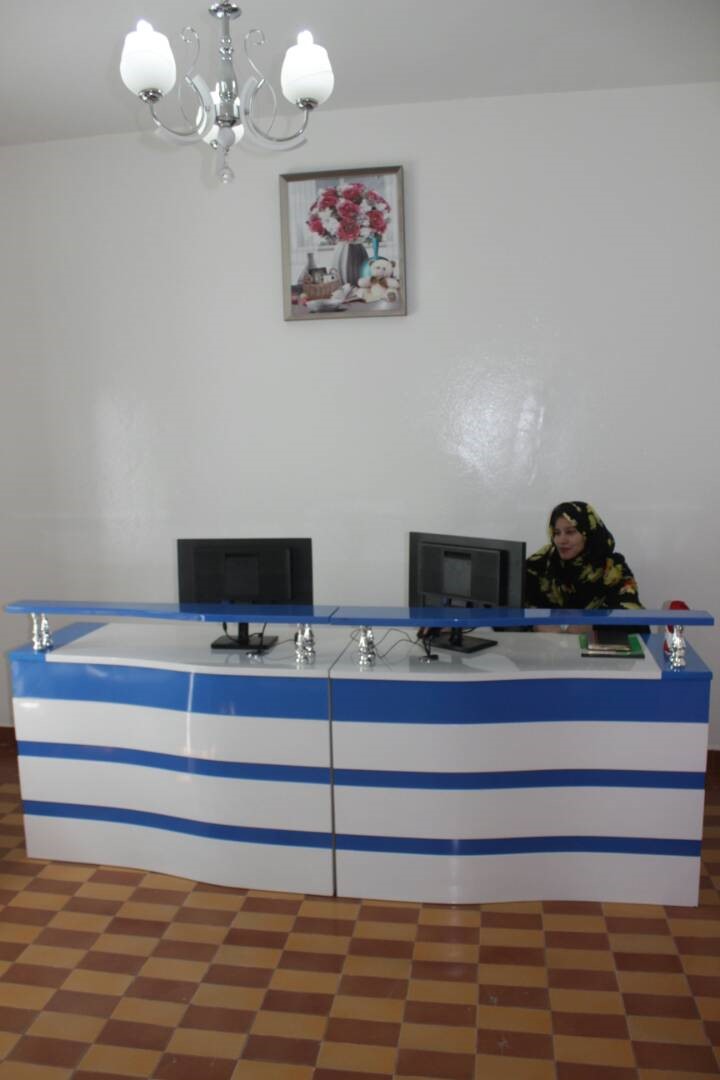 Reception area of the Centre SAADA Counseling
Reception area of the Centre SAADA Counseling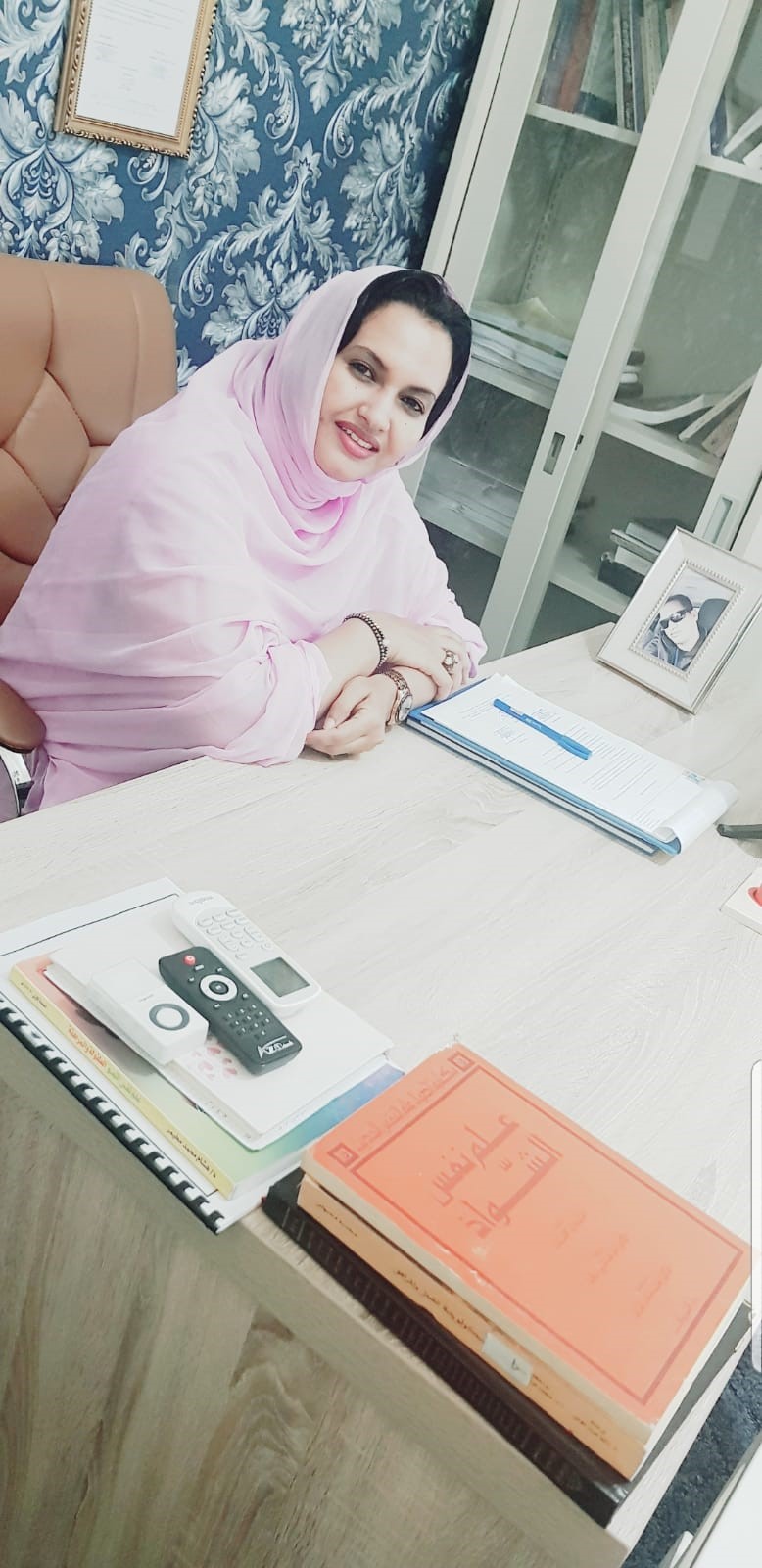 Dr. Mohamed Elmamy
Dr. Mohamed Elmamy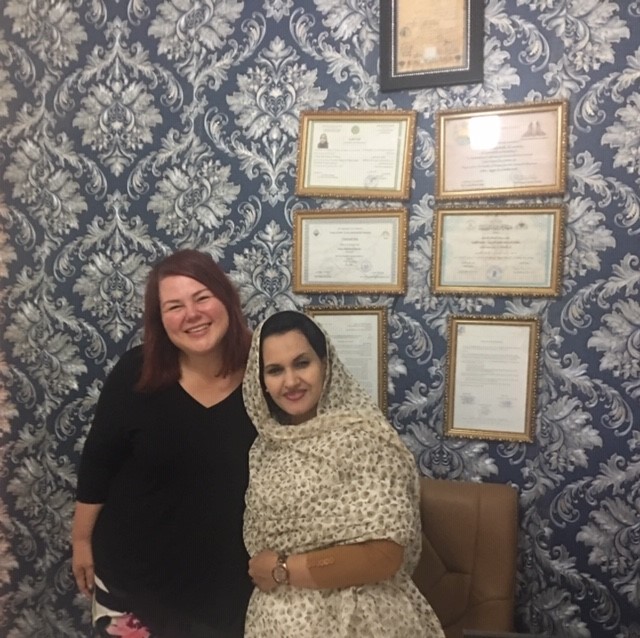 Dr. Tammy Hatfield with Mauritanian Psychologist
Dr. Tammy Hatfield with Mauritanian Psychologist